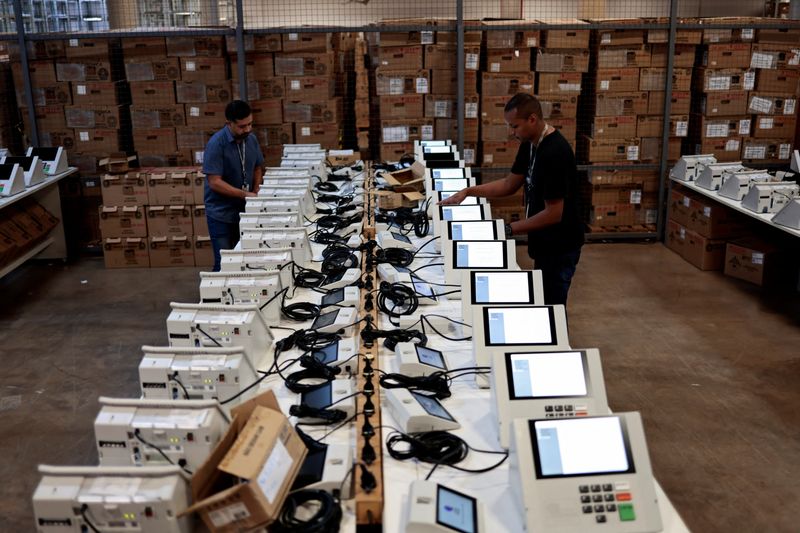BRASILIA (Reuters) – A new poll using data collected from the internet predicted on Thursday a narrowing presidential race in Brazil, with leftist front-runner Luiz Inacio Lula da Silva just 8.4 percentage points ahead of far-right incumbent Jair Bolsonaro.
Lula has 46.7% of voter support versus 38.3% for Bolsonaro for the October election, AtlasIntel online polling firm said, which is a smaller lead than shown by other major polls.
Datafolha has Lula ahead by 15 points, although his lead has narrowed from 26 in December. IPEC, ex IBOPE, gives Lula a 12-point lead.
According to AtlasIntel’s data, the gap has narrowed progressively from 18 points in March to 10 points in July.
Former president Lula would win an expected second-round run-off by 51.8% of the valid votes against 40.8% for his rival, according to the poll, commissioned by political risk consultancy Arko Advice.
“This election is still up for grabs,” said political scientist Lucas de Aragao, an Arko Advice partner.
“The polls are showing a tightening race and it could become tighter. The increased welfare payments by the government and other benefits have still to impact voter decisions; we could be heading into a very tight first round,” he said.
The survey of 7,475 voters was done with AtlasIntel’s random digital recruitment tool, using ads to invite internet users to answer data-secure questionnaires. Samples are then calibrated with demographic indicators, the polling firm’s chief executive Andrei Roman said.
Web data collection was done between Aug. 20 and Aug. 24. AtlasIntel says its poll has a margin of error of 1 percentage point.
(Reporting by Anthony Boadle, Editing by Rosalba O’Brien)
